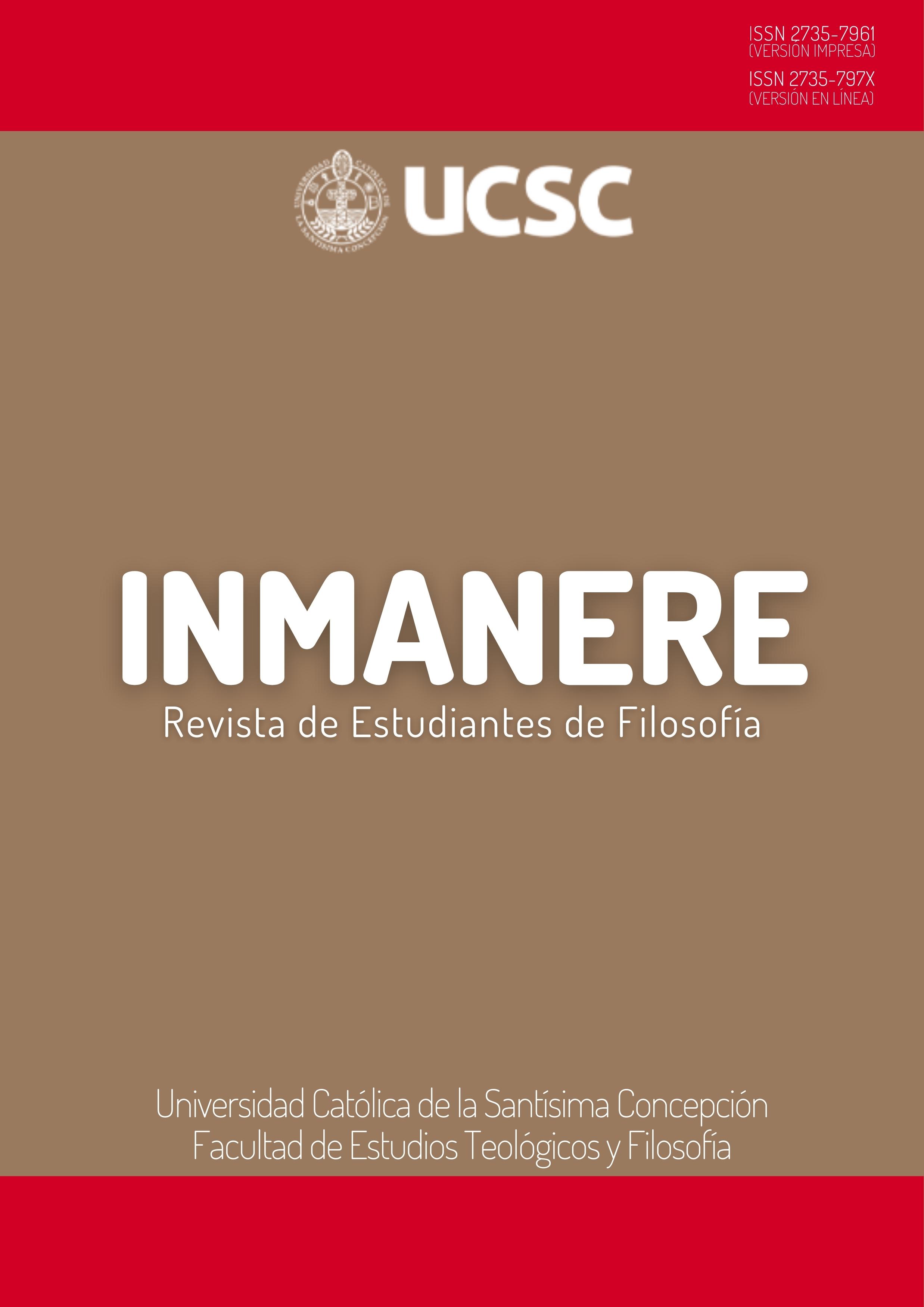¿Qué relación hay entre el Pireo y el desarrollo del primer libro de República?
Contenido principal del artículo
Resumen
La dramatización de los diálogos compagina perfectamente con el resto del contenido filosófico, histórico y literario. Teniendo en cuenta este aspecto, se va a proponer una nueva interpretación del porqué el Pireo es el lugar idóneo para desarrollar el primer libro de República; buscar si hay relación entre aquel y la justicia. Dentro de la discusión del tema, se encuentran las interpretaciones de Roochnik, D (2009) y Domingo, P (1985), las cuales implican la aparición del Pireo en el diálogo por su simbolismo histórico que, a su vez es representado en los interlocutores del diálogo. Se suma la interpretación de Blackburn, S (2015), el cual menciona que Platón pone de manifiesto una discusión moral. Adicionalmente, se anexa la interpretación de Vallejo, A (2018), pues dice que el Pireo es un lugar tranquilo, perfecto para reflexionar sobre cuestiones políticas, lejos de la ciudad de Atenas, la cual recuerda en cierta medida, los enfrentamientos políticos. Asimismo, se utilizará todas las características que ofrece el Pireo, sumado a las razones personales de Platón, y Sócrates, para plantear el porqué del escenario y su relación con la justicia.
Detalles del artículo
Sección

Esta obra está bajo una licencia internacional Creative Commons Atribución-NoComercial 4.0.
El trabajo se encuentra licenciado bajo una Licencia Creative Commons Atribución 4.0 Internacional. Esta licencia permite la compartición y adaptación del material en cualquier medio o formato, incluso con propósitos comerciales. Es necesario otorgar la atribución adecuada, proporcionar un enlace a la licencia y mencionar si se han realizado cambios en el material. No se pueden aplicar restricciones adicionales que limiten legalmente a otros a realizar cualquier uso permitido por la licencia.
Cómo citar
Referencias
Alcoberro, R. (2015). Platón. RBA.
Aristóteles. (1970) Política. Instituto de Estudios Politicos.
Aristoteles. (1984). Constitución de los Atenienses. Gredos.
Conolly, P. & Dodge, H (1998). La ciudad Antigua. (P. Ripollés. y R. Cifuentes, trad.). Acento Editorial.
Crombie, I.M. (1979). Análisis de las doctrinas de Platón. I El hombre y la sociedad. Alianza.
Chantraine, P. (1968). Dictionnaire étymologique de la langue grecque. Histoire de mots. Tome I Α-Δ. Klincksieck.
Chantraine, P. (1970). Dictionnaire étymologique de la langue grecque. Histoire de mots. Tome II Ε-Κ. Klincksieck.
Blackburn, S. (2015). Historia de la República de Platón. Penguin.
Burnet, I. (1905). Respublica. En Opera Platonis (vol. IV). E typographeo Clarendoniano.
Burnet, I. (1905). Epistulae. En Opera Platonis (vol. V). E typographeo Clarendoniano.
Dionisio de Halicarnaso. (2001). Sobre la composición literaria/Sobre Dinarco. Gredos.
Dodds, E.R. (1999). Los griegos y lo irracional. Alianza.
Domínguez, A. & Pascual, J. (2006). Atlas Histórico Del Mundo Griego Antiguo. Síntesis.
Görgemanns, H. (2010). Platón una introducción. Instituto de Estudios de la Sociedad.
Gorgias. (1980). Fragmentos. Universidad Nacional Autónoma de México.
Guthrie, W. (1990). Historia de la Filosofía griega IV. Gredos.
Havelock, E. A. (1969). An Essay in Greek Intellectual History. Tribute to George Grube, the Distinguished Author of "Plato's Thought“. Classical Association of Canada Phoenix, 23(1), 49-70. http://www.jstor.org/stable/1086568 DOI: https://doi.org/10.2307/1086568
Jaeger, W. (2001). Paideia los ideales de la cultura griega. Fondo de cultura económica de México
Kahn, C. (2010). Platón y el diálogo Sócratico El uso filosofico de una forma literaria. Escolar y mayo ediciones.
Lisias. (1988). Discursos I. Gredos.
Jenofonte. (1984). Obras Menores. Gredos.
Koyré, A. (1966). Introducción a la lectura de Platón. Alianza.
Plácido D. (1985). Platón y la guerra del Peloponeso. Gerión. Revista de Historia Antigua, 3(43), https://revistas.ucm.es/index.php/GERI/article/view/GERI8585110043A
Platón. (1986). Diálogos IV. Gredos.
Platón. (2008). República. Losada.
Platón. (1970). Cartas. Instituto de Estudios Políticos.
Reale, G. (2002). En búsqueda de la sabiduría secreta. Herder.
Roochnik, D. (2009). The Political Drama of Plato’s Republic. En The Cambridge Companion to Ancient Greek Political Thought. (pp. 156-177). S. Salkever (Ed.). Cambridge University Press. DOI: https://doi.org/10.1017/CCOL9780521867535.007
Szlezák, T. (1991). Leer a Platón. Alianza.
Taylor. E. A. (1955). Plato The Man and His Work. Methuen And Company.
Vallejo, Á. (2018). Adonde nos lleve el logos. Para leer la República de Platón. Trotta.




